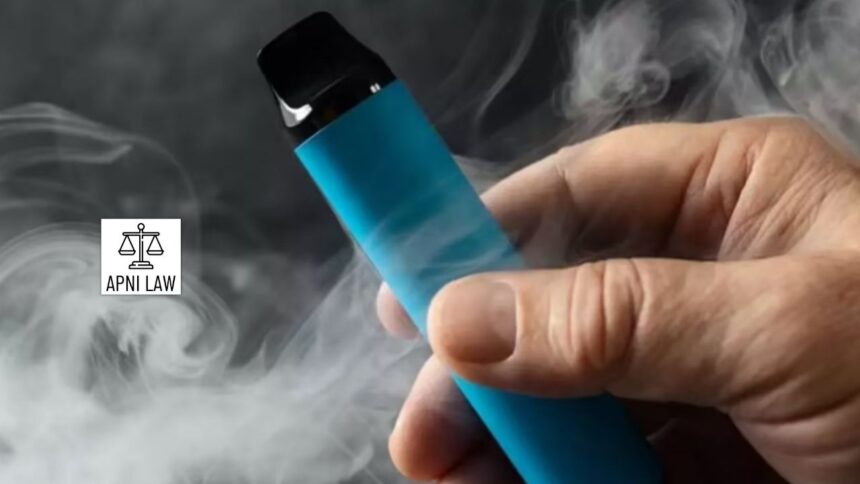Introduction
India has taken a firm stance against electronic cigarettes by banning their storage, sale, and promotion. This move is part of a larger public health initiative to combat the growing trend of vaping among youth. The law clearly prohibits any individual from knowingly allowing their premises to be used for the storage of e-cigarettes after the act’s enforcement.
What Happens When A Person Is Found Disposing Existing E-Cigarette Stock
As per the law, anyone in possession of e-cigarettes for sale, transport, export, or promotion must dispose of them properly. Owners or occupiers must prepare a self-declared list of their stock and submit it to the nearest authorised officer without delay. Once received, the officer must take legal steps to dispose of the items quickly and safely, following current legal procedures.
Who Has The Power to Enter, Search, and Seize Without Warrant
Authorised officers hold significant power under this law. If they suspect illegal activity related to e-cigarettes, such as production, trade, storage, or advertisement, they may enter and search the premises without a warrant. This step ensures immediate action to prevent the misuse of such products.
Does A Seizure and Legal Custody of E-Cigarette Stocks Take Place
After conducting a search, if the officer finds records or materials linked to illegal e-cigarette activities, they can seize them. If needed, they may also take the involved individuals into custody and present them before a Judicial Magistrate of the First Class. The intention is to ensure strong enforcement and legal accountability.
In cases where direct seizure is not feasible, the officer can issue a written order to attach the suspected property, stock, or documents. This is applicable when there’s a complaint, credible information, or reasonable suspicion. The order becomes binding on the person involved, ensuring that evidence is preserved.
All actions related to search, seizure, and attachment must follow the Code of Criminal Procedure, 1973. This provision upholds the legal rights of individuals while empowering authorities to act against illegal e-cigarette activities.
Union of India v. Plume Vapour Pvt. Ltd.
In a widely reported case, the Central Government took legal action against Plume Vapour Pvt. Ltd., one of the early distributors of e-cigarettes in India. The case highlighted the need for strict enforcement, as the company allegedly continued selling and promoting e-cigarettes despite the ban. The Delhi High Court allowed seizure of all materials related to the business, setting a strong precedent for future actions.
Conclusion
India’s strict laws against electronic cigarettes reflect its commitment to public health and youth safety. The ban on storage, combined with broad search and seizure powers, ensures thorough enforcement. With legal precedents supporting these actions, India stands firm against the harmful influence of vaping and electronic nicotine delivery systems (ENDS).








